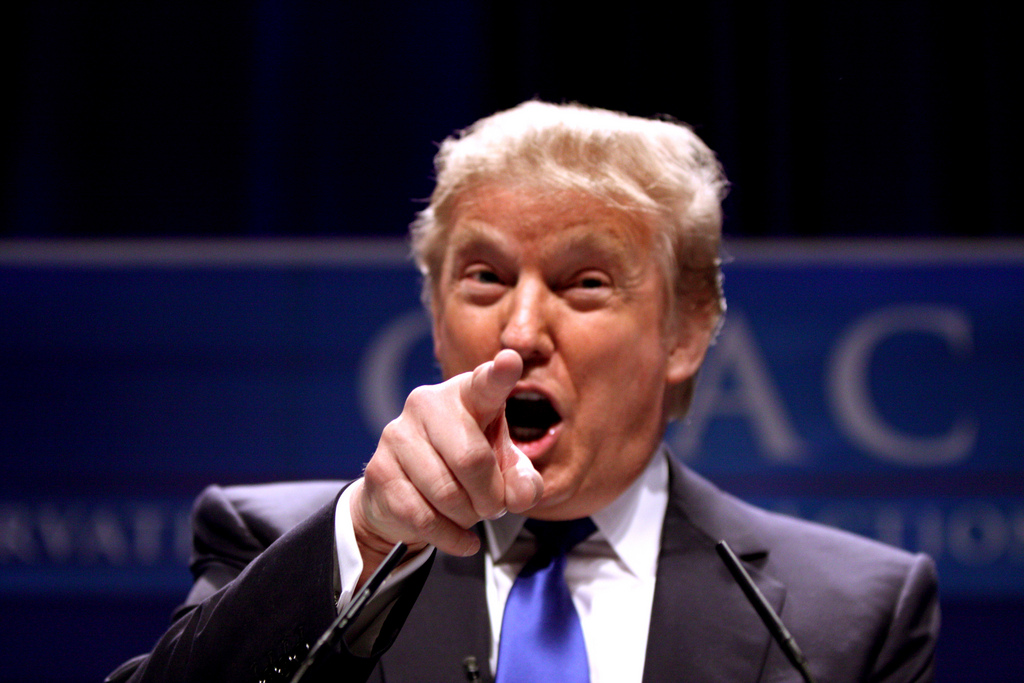President Trump’s language may not seem presidential, but people of color know too well his racism is aligned to a bigoted legacy that’s more the rule than the exception. If the country is going to progress, all students need to learn in this critical moment that American “greatness” can never come from exclusion.
Doing little to nothing amidst significant teachable moments around race has been U.S. Secretary of Education Betsy DeVos’ strategy so far, as we saw most particularly in her limp reaction to Charlottesville. But civics teachers can’t afford not to address Trump’s racist behaviors, especially his recent bigoted remarks on Jan. 11 when he referred to Haiti, El Salvador and African countries as “shitholes.” Inertia in the face of this kind of vitriol reinforces the kind of schooling that fostered many presidents’ bigoted views – including Trump’s.
“Thinking about my immigrant students this morning and about the disgusting comments made by our president yesterday. I teach civics. How should we address?” Educator Dan Morse tweeted directly to me and a few other education experts after Trump’s comments on immigrants aired last week. Trump suggested that we should want people from Norway, a majority-white country.
Related: COLUMN: Baltimore students need more than space heaters; they need justice
I initially replied that Morse should have all his students reflect on our national motto E pluribus unum, Latin for “Out of many, one,” by writing about what the motto that was established in 1782 means to them and the country today.
Between that reply and the time I finished this column, I’ve haven’t heard any statements or advice from DeVos about this national conversation overheard by millions of students, families and teachers. In the absence of her leadership, it’s incumbent on educators like Dan Morse to share classroom strategies. There is more critical thinking that civics teachers can encourage.
Teachers should stay focused on how the current moment relates to a long history of U.S. policies that favored some and burdened others. They might discuss the nation’s immigration policy before 1965, which was based on a national-origins quota system. This restrictive policy argued for racial and national selectivity. They might specifically call out the Chinese Exclusion Act or “Operation Wetback,” and ask students to consider these policies in light of current events.
On this week when we remember Martin Luther King, Jr., teachers might discuss slow-footed presidents who dragged their feet in enforcing integration mandated by the Supreme Court in the Brown vs. Board of Education decision in 1954, or the mixed feelings President Lyndon Johnson had about King, even as he reacted to the Selma marches and “Bloody Sunday” with the Voting Rights Act in 1965.
Civics teachers should avoid bombarding this teachable moment with stories of immigrant exceptionalism and model minorities. Columnist Shamira Ibrahim noticed a wave of narratives about the wonderful contributions immigrants have made to America as a kind of wrongheaded appeal to racist sentimentalities. “The social contract that we abide by comes with an expectation of respect for our basic humanity, an expectation of life, liberty and the pursuit of happiness — not a degree audit,” wrote Ibrahim.
In the same vein, activist and educator Brittany Packnett shared on her Instagram feed that “people of color do not need to justify our existence to anyone. Our humanity – not our merit – make us worthy.”
Related: COLUMN: Charter school leaders are complicit with segregation, and it’s hurting their movement
The point is that teachers can certainly uplift their students and their stories, but they shouldn’t encourage the narrative that immigrants must justify themselves to racist laws. Nor should immigrants and other groups be the bridges of knowledge for whites and native-born students. That’s what teachers are for.
Trump in a tweet (kind of) denied that his language last week was racist, writing, “The language used by me at the DACA meeting was tough, but this was not the language used.” On Sunday, he went further, declaring he was not racist.
The absence of an apology unsurprisingly hasn’t cooled the backlash, which continues to grow. But it’s important students realize Trump’s racist comments and his “Make America Great Again” mantra are America’s racist history rearing its head again, part of a 300-year pattern of two steps forward and one step back that defines this country’s social progress. Abraham Lincoln, who is often revered for freeing the enslaved, did little to make them full citizens thereafter. While Bill Clinton sung the black American national anthem “Lift Every Voice and Sing” in black churches, he presided over the largest increase in federal and state prison inmates.
Related: COLUMN: Open letter to teachers who feel trapped in racist schools
Trump is not the first president not to want Haitians, Africans (and people of African descent), Mexicans and other people of color.
We need all educators, including Betsy DeVos, our educator in chief, to tackle these lessons. Trump may not want certain immigrants, but it’s her responsibility to protect the more than 630,000 immigrant students nationwide. It’s also her job to be an educational leader and encourage schools to help their students think critically about the racist, nativist rhetoric coming from the Oval Office.
Silence consents to and encourages institutionalized racism. DeVos must reckon with her silence or concede she is not doing her job for all children.
This story was produced by The Hechinger Report, a nonprofit, independent news organization focused on inequality and innovation in education. Sign up for our newsletter.




